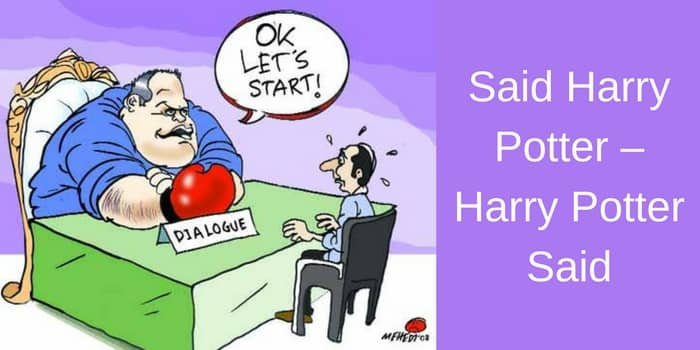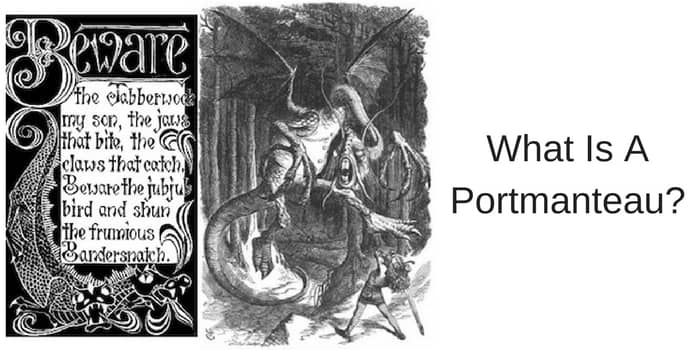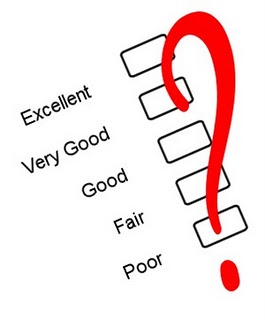
How do you use dialogue tags?
Dialogue tags must be the most written about and discussed structure in a writer’s grammatical toolbox. One that I haven’t mentioned before as I didn’t want to join the long and probably never ending debate.
However, after getting close to finishing reading the third Harry Potter book, (yes I know I’m a bit late in doing so) I just can’t keep my opinion quiet any longer. I am also readying myself for brutal Vandal reader disagreement here, but I just don’t like dialogue tags with the verb before the subject, which J.K. uses almost without fail. Except when she can’t.
‘Let’s go,’ said Harry. Now grammatically and stylistically correct. But as an old English teacher, it grates on me. ‘Let’s go,’ Harry said. Now that makes me feel much better.
In my mind, a verb before a subject is used to form a question.
‘Said who?’ Harry asked, or asked Harry.
‘She did,’ said she.
Oh dear, this one can’t be inverted. Said she is a no no. So why is said Harry correct, but it becomes incorrect with a pronoun. Well, because it’s just like that, that’s why. Maybe it’s just me, but I like reading books that use subject – verb tags. Easier on the eye or something. ‘All right, enough said. Said enough,’ I said.
Except for adverbs!
Now I know they are considered a definite no-no in dialogue tags, but from time to time I like them. (Sorry Stephen King. I know what you’d say.) I know that ‘she said smilingly’ would get any editor’s red pen in a microsecond and rightly so but just from time to time I like them. If only to break up the ‘he said, she said’ pattern.
‘I have you now my little princess,’ he said wickedly. Then drove the dagger through her heart.
‘I like that!’ I said proudly.




He said, said he. Malcolm said – all show a lack of imagination on the part of the writer. Sometimes dialogue between protagonists minus dialogue tags works far better.
"Got the goods," Malcolm asked as he grew angry.
"No – want to make something of it?"
"Cool down," Malcolm replied as anger was replaced by reason.
Etc, etc
You know what I mean Derek. :)
He said. She replied. He retorted. No. Just…no. If your reader is looking at the dialogue tags, you’re doing it wrong. I try to avoid dialogue tags entirely where I can, often writing a sentence describing something going on with or about the speaker, and then writing the dialogue, but sometimes tags can’t be avoided. When this happens, he said, she said, they said, only. Nothing else. Your dialogue tags aren’t the story. If you’re distracting your reader with them because you want to be imaginative or want your tags to look pretty, you’re doing it wrong. Dialogue tags are there to identify who’s speaking. If you’re distracting your reader with them, you’re breaking the flow of the story. Stop doing that!
Replied, retorted, responded, quipped, shouted, yelled: these are all alternate words for said and they add nothing. When your character is shouting, you are going to put an exclamation point at the end of the sentence. Shouting, yelling, and whispering can be excused because they specifically indicate a certain tone, but even they should be avoided where possible, and usually can be.
He said, she said, they said, we said. Whatever it is, “said” is all you should be using. Think about it. When you have two people speaking, in proper writing, the first sentence is tagged to indicate the first person speaking, and the second tag is used to indicate the second person. After that, you stop using tags until the flow of the conversation is interrupted, at which point, it’s wise to retag the conversation. He replied, she retorted: if you’re doing this, that’s an indicator you’re using too many tags. They are also pointless and attract unnecessary attention.
Don’t do that. It’s bad writing. You’re substituting dialogue tags in place of story progression and character development.
Even easier with a two character dialogue Jack. You can drop them altogether!
I'm almost wishing that I hadn't read this article, Derek. Up until a few minutes ago I wasn't aware that there were any rules about it. I generally use whatever form sounds best at the time. And I say 'sounds' because when I'm unsure I'll read it back aloud so I can see which makes me cringe the least.
To +1 Jack there, often it is better to not use any tags.
Thanks for giving me something to 2nd guess myself with, Derek. Ignorance used to be such bliss. :-)
Kind regards,
Steve
I had to laugh when I saw your reply. I’m with you!
I think it's more about style. I didn't notice anything out of order while reading the HP books, but now when I think about it, it gives it a different vibe to the text, and I think it serves well the books. Wouldn't want anyone to change it in HP series.
Well, she has a billion dollars in her pocket and what do we have… A rule that's broken all the time. Yes, we can look at the correct way to write. But, remember the rules are made to be broken from time to time. Derek great post. I love reading them!
Very valid argument John. A billion beats my English teacher's hourly rate. lol But, I like being a grammar stickler and word nerd. However, I could change my mind for half a mil! lol
Said she, said he, said I etc. are used a lot over here in Ireland. It's a colloquialism often used in dialogue and can work well in dialogue tags to give an "Irish" flavour.
Derek said, "I hate this construction. It makes my teeth ache."
"You're lucky," says I, "I don't have any teeth."
Excellent points! I get irritated with the "he said, she said" but I do need indicators on who's saying what. With a page of dialogue and few tags as to which character is making the retort, I get lost.
The alternate to dialogue tags are dialogue beats, which are better anyway. Beats are the action that happens between dialogue – what the characters are doing. If you use a beat, there is no need for a tag.
'I don't know.' Astarl spun the dagger across her knuckles. 'What do you think?'
This is a beat. You can eliminate the whole 'he said, she said' thing by doing this. Show don't tell.
I guess that Ms Rowling is of the view that style beats rules. "Let's go," said Harry, for example, is more pleasing to the ear. As for adverbs, I'm with Stephen King there. You don't need to add "wickedly" when a character is gloating over plunging a dagger in someone's heart!
Ahh, tags. Adverbs in tags. Rules. Rules. Rules.
Really wish I could break out in song, “Signs, signs everywhere there’s signs saying do this, don’t do that, can’t you read the signs?”
This song is so appropriate for writing. There are a thousand “how-to-write” blogs out there, and a thousand more “how-not-to-write”. Everyone has their own style or complaint as to why they use a tag or want to use an adverb and as long as you use them sparingly–yes I added that on purpose–I think it’s okay. If your writing becomes formulaic and predictible then it also becomes boring.
Knowing and understanding the rules of tags and adverbs empowers us to use them at just the right moment. (My personal preference is to avoid tags and adverbs as much as possible).
After looking more deeply into the matter, apparently it’s the old school way to do it in UK.
I never noticed the tags in the Harry Potter books, although I did notice the adverbs. Not when I was reading, but when I listened to them later on CDs. I wonder if Jim Dale got annoyed when he was reading them all aloud. I imagine him saying, “If she left all the ‘angrily’ and ‘petulantly’ and ‘irritatingly’ out of here, this book would be three hundred pages shorter!
I love adverbs Beth. They aren’t in our language for nothing! But perhaps in moderation.
When I was a little bitty brand-new writer, I thought that using the word “said” all the time was the sign of bad writing. :p I didn’t know that it was actually preferred over superfluous adverbs and adjectives. It’s kind of embarrassing to admit that, actually. :p
That said, it does get tedious after awhile, so breaking it up every so often is a good thing, as long as it’s not done too much.
They can get boring Lauren. I like dialogue with only two people. Then you don’t have to bother using dialogue tags at all! Neat and tidy and very economical.
So just avoid 3 and 4 way dialogue and all is well.
I just found this post. I’m so thrilled someone (other than myself) was annoyed with Rowling’s verb/subject dialogue tags. Of course, they set a different tone for the writing, and I suppose it’s her prerogative.
Thanks for stumbling on my blog Lynn. Glad you found it informative.
Hmm. Sort of agree, Derek. I think JK’s style is from an earlier age – more Victorian or Edwardian – and I reckon it works very well for her stories.
On the ‘he said/she said’ I do agree, but quite often I have three or four folks involved in a chat, and then you do need to break things up a little. Adverbs are find on occasion, but can get clunky. ‘Said’ is OK, but so is ‘grunted’, ‘swore’, ‘hissed’, and any number of alternatives. I’m happy to get an extra clue about someone’s mood in the way they speak. But only as an addition in case ‘said’ just gets a little tedious!
At the end of the day we have to write in the way that feels right to us, don’t we?
I agree Michael. It’s more about style than hard and fast rules. Most writers know when a text becomes repetitive and boring, but what is important is whether they have the structural tools in their kit to change this. I strongly believe that although grammar may be a little unfashionable, a good knowledge can help overcome these problems.
There are many grammatical options available in English to handle dialogue, and brushing up on these elements would be well worthwhile for some writers new to the profession.
When I first started writing stories, I used ‘ “Let’s go,” said Harry.’
This was even after reading Stephen King’s and a number of other books on writing.
I was surprised to notice, when I started studying how published authors wrote, that most /all of them write …. Harry said.
I don’t know where I got the ‘said Harry’ but it sounds better to me.
Anyway… I have continued studying the way published authors write, and I note that it is in beats, as Ciarra mentions, as well as with ‘said, grunted, swore and hissed as Michael suggests and with or without adverbs.
I am a little disgusted at the ‘rules’; no one seems to follow them. What does that say about the rules? And yet it holds new writers back.
It’s as if you must get through the ‘Level of the Rules’ and discover for yourself that (at least some) ‘successful’ writers don’t follow them, before you can continue getting better yourself.
If you stick to he said/she said in writing, it’s boring, uninformative and holds back the progress of the story. I know, b/c I’ve done it. But not anymore.
My writing is now coming into line with writers I like. I’ll go back and read Stephen King some more b/c I think he knows what he’s talking about.
And I’ll avoid writing like some writers who snarl angrily, pout petulantly or grind their teeth irritatingly.
I think some very popular writerrs have succeeded not b/c of their writing skill, but b/c of their great stories and story telling.
That said, I have read/am pushing myself through, some writers who are lauded for good writing style, but take 1000 words when 1 would do.
No one is friends with everyone.
No writer can please everyone.
We all have to find the best way of telling our stories and hope some people will like them.
Good luck and good writing. : )
They say, ‘never follow the pack’ Louise. So while I agree there are some general ground rules, I don’t think there is a set of laws governing writing. Heaven forbid if there were as it would be oh so receptive and boring.
A lot of the discussion among the purists revolves around these dialogue tags, which I find a bit of a nonsense. Using only ‘said’ and avoiding using any adverbs becomes sterile and boring. In either order. I must admit that while I really enjoyed reading a few Harry Potter books, the repetitive use of ‘said Harry’ drove me insane. Especially when it was only a two person dialogue. The tags could have been dispensed with in this case.
The adverb argument is slightly different. ‘He said angrily’ is fine in moderation, but. ‘He said as he hit her over the head with a heavy cast iron frying pan’, would in my mind improve the story for the reader.
In the end it’s about finding your writing ‘voice’ and this is certainly not going to be achieved by following all the rules.
Good luck!
I think you’d find more British and Australian writers using the “verb-subject” grammar tags than Americans – we Americans just simply don’t talk that way. However, in this global age we live in, it’s good to know what grates on certain ears and what doesn’t.
I prefer the old European (Spanish, for example) way.
A long dash (tiret) introduces the spoken line.
Often no specification of who spoke is given. You can understand from the context.
If the tags are given in other languages, they are often more dramatic than in English.
In English, many have been taught to stick to rather neutral tags using say/utter/ tell.
I innovated in my new manuscript to avoid the usual tags. Not easy. I also reduced dialogue to avoid too many tags. Maybe it will work?
I think with the Harry Potter books we have to remember that the target audience is 10 year old kids who might be more easily confused than adults who happen to be avid readers and writers. Sorry about the adverb.
Hello, new here. I was wondering if age and category of book, such as chapterbooks, middlegrade books, young adult novels and farther on up, are taken into consideration when regarding dialogue tags? A lot of my favorite kids books use all the above mentioned tags to wildly varying degrees; said Harry, Harry said, Harry said angrily, said Harry angrily, and the sentence leading into the dialogue so that no tag is needed, Am I forgetting any? None of these seem out of the ordinary and to me, rather, they appear quite comfortable on the eye. For younger readers such as the age groups for the above mentioned categories, are these tags perfectly fine? And, where it’s considered unneeded, unnecessary or just wrong, are you speaking from a place of adult novels?
Thank you!
Daniel